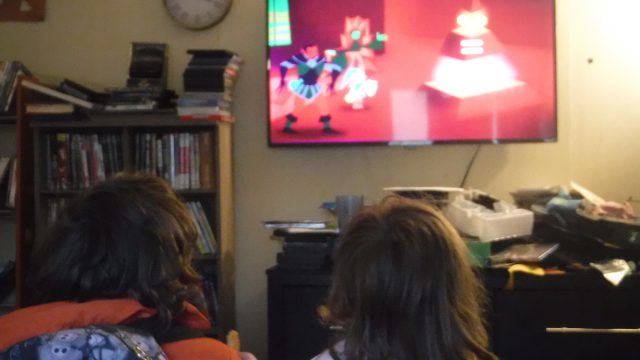My eight-year-old son, Zane, is very into riddles these days. And it’s true that the videos he watches calls them riddles. However, they’re not what I think of as riddles. They’re logic problems. In fact, some of them are logic problems that I would solve with a chart of the kind you’d get in a book of them. Now, goodness knows I am not going to shame Zane for enjoying them. As someone who does a daily logic problem herself, I basically don’t get to do that. I do kind of wish he’d stop trying to tell them, though.
The YouTube videos he watches are from TED-Ed. I’m not sure what age level they’re aimed at, honestly. However, there are a lot of them. (Though thanks to the YouTube algorithm, I’m not sure we’re seeing a lot of new ones on a lengthy binge.) The video description always asks if we can solve them. They give you the details as part of a story, then lay out all the relevant clues on a screen you can pause your video on so you can watch and think as long as you need to.
I don’t think Zane usually solves them, but that’s okay. He doesn’t have to for the videos to be helping him. They’re teaching him how to think in a logical, rational way. Now, Zane is a child deeply in touch with his emotions. His bigger problem is dealing with his feelings in a productive way. Not only that, but I don’t believe that emotion and logic are necessarily at odds; you need to know that emotions often respond to rules—if you are mean to someone, it upsets them, for example, among others—and that both emotion and logic matter.
However, it’s nice that Zane is learning how to follow chains of logic. It’ll help him in his life. Understanding why things go the way they do is important for him. Basic logic helps with math and science, should those be things that interest him. He’s a smart kid, and I think watching these videos will in time help him be able to actually solve problems in time. He seems to follow the explanations as much as he follows the stories, and he does seem to remember the solutions.
When I was about Zane’s age, my mother rewarded my own liking for logic problems by giving me a book of them that I still have somewhere. I’ll have to pass it on to him at point. I’m not sure how he came across this series of videos—probably through another YouTube series I’ll get to at some point—but I’m glad he did. I’m glad he’s learning how to think this way. I’d like to hope it’ll prevent him from getting trapped in some of the patterns of thought that are so dangerous for people, that cause things like conspiracism. We’ll see, I suppose.
Help me buy him his own books of logic problems by supporting my Patreon or Ko-fi!

